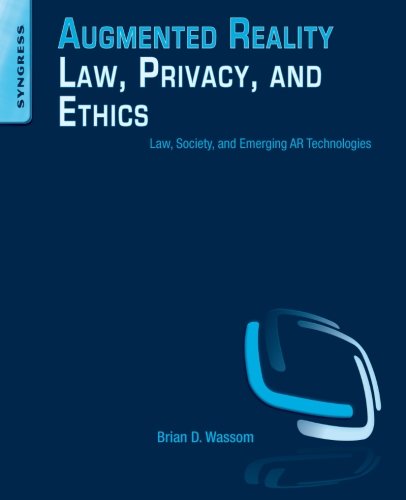

Most ebook files are in PDF format, so you can easily read them using various software such as Foxit Reader or directly on the Google Chrome browser.
Some ebook files are released by publishers in other formats such as .awz, .mobi, .epub, .fb2, etc. You may need to install specific software to read these formats on mobile/PC, such as Calibre.
Please read the tutorial at this link: https://ebookbell.com/faq
We offer FREE conversion to the popular formats you request; however, this may take some time. Therefore, right after payment, please email us, and we will try to provide the service as quickly as possible.
For some exceptional file formats or broken links (if any), please refrain from opening any disputes. Instead, email us first, and we will try to assist within a maximum of 6 hours.
EbookBell Team

4.4
72 reviewsAugmented Reality (AR) is the blending of digital information in a real-world environment. A common example can be seen during any televised football game, in which information about the game is digitally overlaid on the field as the players move and position themselves. Another application is Google Glass, which enables users to see AR graphics and information about their location and surroundings on the lenses of their "digital eyewear", changing in real-time as they move about.
Augmented Reality Law, Privacy, and Ethics is the first book to examine the social, legal, and ethical issues surrounding AR technology. Digital eyewear products have very recently thrust this rapidly-expanding field into the mainstream, but the technology is so much more than those devices. Industry analysts have dubbed AR the "eighth mass medium" of communications. Science fiction movies have shown us the promise of this technology for decades, and now our capabilities are finally catching up to that vision.
Augmented Reality will influence society as fundamentally as the Internet itself has done, and such a powerful medium cannot help but radically affect the laws and norms that govern society. No author is as uniquely qualified to provide a big-picture forecast and guidebook for these developments as Brian Wassom. A practicing attorney, he has been writing on AR law since 2007 and has established himself as the worlds foremost thought leader on the intersection of law, ethics, privacy, and AR. Augmented Reality professionals around the world follow his Augmented Legality® blog. This book collects and expands upon the best ideas expressed in that blog, and sets them in the context of a big-picture forecast of how AR is shaping all aspects of society.